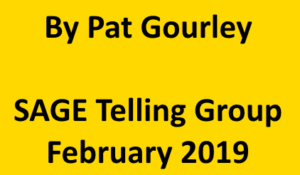
Somewhere over the rainbow
Bluebirds fly
And the dreams that you dream of
Dreams really do come true
Lyrics by Harburg and Arlen. 1939
It is the year 50AS (After Stonewall) or 2019 if you prefer the Gregorian calendar. By using AS I guess I prefer the historical significance of the Stonewall Riots to the largely accepted birth year of Jesus as a way of measuring the passage of time. It is though highly unlikely that I will begin signing my checks this year with 50AS. Gay identity does have its limits after all. Though I myself would rather orient my place in time with the AS-After Stonewall designation I could as easily be persuaded to go with the current Chinese calendar, which would be the year 4717, the year of the pig.
I sometimes fear that what is over the rainbow is actually very succinctly encapsulated in a meme I saw the other day posted on Facebook. It was a photo of Judy Garland smoking a cigarette with the words above the photo stating, “Want to know what is over the rainbow…” and the words below the photo “the same bullshit just in color”. H/T to Mark Delgado and the Facebook page called Hollywood Babylon. My further take on this topic will not be quite so cynical as this meme.
Harry Hay of course, if he were alive today, would have my queer card pulled if I were to attach undue significance to the Stonewall Riots. Paraphrasing here a bit Hay always maintained that there was plenty of groundwork laid in the decades that proceeded it that allowed for Stonewall to be the exploding powder keg it was. Rather than debate that here for the purpose of this exercise I will assume 1969 is the year the gay agenda truly took off and the coming decade in particular was when so many of us made that trip over the rainbow.
I would like though to acknowledge the passing of Patricia Nell Warren on this past Saturday the 9th of February 2019 and the role she and her novels, particularly the 1974 Front Runner, played in helping, at least partially, so many gay men in particular to vault over the rainbow. This gay male mildly erotic novel was written by a lesbian and was the first contemporary queer piece of fiction to make the New York Times bestseller list. I remember devouring the book and its story of love between a running coach and his star athlete. Oh how that coach filled my strong desire to find a similar daddy of my own. The daddy quest still persists for me today but as I have just turned 70 perhaps that quest could use a bit of adjustment. The fluidity of gay male sexuality though does allow for a daddy to actually be younger than the son so hope springs eternal.
The tune Somewhere Over the Rainbow of course conjures up the movie the Wizard of Oz and the integral part played by that tune in the movie. Judy Garland, who played Dorothy, of course was and is a gay icon. Many gay men also became identified as Friends of Dorothy. This was a subtle way of facilitating meeting and hooking-up with the like-minded and still being able to maintain at least a modicum of protection from heterosexual harassment or worse.
The original Wonderful Wizard of Oz was written in 1900 by L. Frank Baum and was the first book in a series of 14 total that he wrote. Most believe that the phrase “Friend of Dorothy” originated from the film the Wizard of Oz and its iconic star Judy Garland. Again referencing the Wikipedia page and its sourcing it may though have come from a later book in the Baum series entitled The Road to Oz written in 1909. One of the characters in this book was named Polychrome who after meeting Dorothy and her well known traveling companions remarked: “you have some queer friends, Dorothy” to which she replied “The queerness doesn’t matter, so long as they’re friends”. (H/T again to Wikipedia and their sourcing)
I would say one of the most significant things to come from being somewhere over the rainbow is to be identified as a Friend of Dorothy. I again want to share with the SAGE Story Telling Group the delicious quote from Randy Shilt’s 1993 book titled Conduct Unbecoming: Gays and Lesbians in the U.S. Military:
In the early 1980s, the Naval Investigative Service was investigating homosexuality in the Chicago area. Agents discovered that gay men sometimes referred to themselves as “friends of Dorothy”. Unaware of the historical meaning of the term, the NIS believed that there actually was a woman named Dorothy at the center of a massive ring of homosexual military personnel, so they launched an enormous and futile hunt for the elusive “Dorothy”, hoping to find her and convince her to reveal the names of gay service members.[6]
And folks if you doubted for a minute that we would successfully achieve our queer agenda just let that quote sink in.
